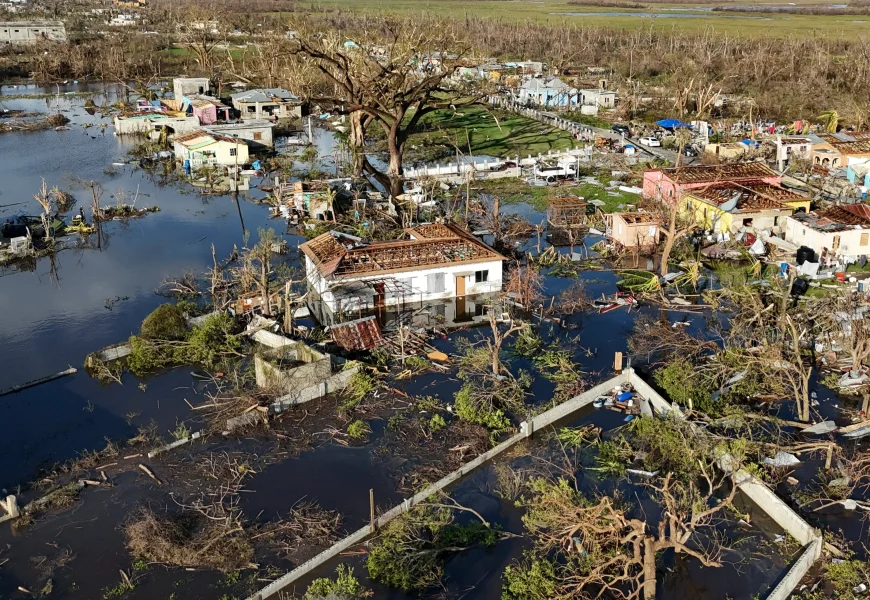“This is a vicious circle,” Baerbock said. “If we do not stop the climate crisis it will fuel hunger and poverty which will fuel again displacement and by that will challenge regions in a different way, leading again to instability, crisis and most often also conflict. So, fighting the climate crisis is also the best security insurance.”
But at the same time, dealing with climate change’s problems can make the world more peaceful, Baerbock said, pointing to conflicts over water in Central Asia. There, an agreement on water became “a booster for peaceful cooperation and peaceful settlement.”
Drought can take a long time to make an impact, but storms made worse by Earth’s warming atmosphere can strike in a flash. Baerbock pointed to last month’s Hurricane Melissa decimating Jamaica and two typhoons smacking the Philippines.
“Achievements of sustainable development can be diminished in just hours,” Baerbock said. That’s why foreign aid from rich nations to poor to help deal with climate disasters and adapt to future ones “are also investments in stable societies and regions,” she said.
Baerbock, a veteran of climate conferences, said people scoffed at the young people of small island nations who filed a suit in the International Court of Justice about climate change, damage and their future. But the court’s ruling in July that action must be taken to limit warming “shows the power of the world if it works together,” she said.


